Start to Finish with GT Luxury Group
Financial Terms Glossary
How to Find a Off Market Deal in NJ
Understanding financial terms is crucial whether you’re buying or selling a home. This glossary covers the most important terms you’ll encounter in real estate transactions in New Jersey. Familiarizing yourself with these concepts will help you navigate the process with confidence.
Adjustable-Rate Mortgage (ARM):
A type of mortgage in which the interest rate periodically adjusts based on an index reflecting the cost to the lender of borrowing on the credit markets. ARMs generally start with a lower interest rate than fixed-rate mortgages, but they can increase or decrease over time, depending on market conditions.
Adjustment Date:
The date on which the interest rate for an adjustable-rate mortgage (ARM) changes. After the initial fixed-rate period ends, the rate may adjust up or down based on the index and the terms of the loan.
Amortization:
The process of paying off a mortgage loan over time through regular payments. Each payment covers both interest and a portion of the principal balance, gradually reducing the amount owed.
Annual Percentage Rate (APR):
The APR represents the total cost of a mortgage, including the interest rate, points, mortgage insurance, and other fees. It is expressed as a yearly percentage and helps borrowers compare different loan options.
Appraisal:
An estimate of the property’s current market value as determined by a professional appraiser. Lenders require an appraisal to ensure that the property is worth the loan amount requested.
Asset:
Anything of value that is owned by a person or entity. In real estate, assets include property, cash, and investments that can be used to secure a loan or determine a person’s financial standing.
Assumable Mortgage:
A mortgage that can be transferred from the seller to the buyer. The buyer takes over the seller’s loan, usually with the same terms and conditions. This can be advantageous if the existing loan has a lower interest rate than the current market rate.
Balloon Mortgage:
A type of mortgage with regular payments that cover only interest or a portion of the principal and interest. At the end of the loan term, a large payment (the balloon payment) is due to pay off the remaining principal balance.
Bridge Loan:
A short-term loan used to “bridge” the gap between buying a new home and selling the old one. This loan allows homeowners to make a down payment on a new home before selling their current property.
Closing:
The final step in a real estate transaction where ownership of the property is transferred from the seller to the buyer. During closing, the buyer signs all necessary documents, pays closing costs, and receives the keys to the new home.
Closing Costs:
Expenses incurred by both buyers and sellers during the completion of a real estate transaction. For sellers in New Jersey, these costs typically include real estate agent commissions, title insurance, transfer taxes, and attorney fees.
Collateral:
An asset that a borrower offers to a lender to secure a loan. In a mortgage, the property itself serves as collateral. If the borrower defaults on the loan, the lender can seize the property.
Conforming Loan:
A mortgage that meets the loan limits and other criteria set by Fannie Mae and Freddie Mac, two government-sponsored enterprises that buy and securitize mortgages. Conforming loans typically offer lower interest rates.
Deed:
A legal document that transfers ownership of a property from one party to another. The deed is signed during the closing process and recorded in public records.
Down Payment:
The initial payment made when buying a property, typically expressed as a percentage of the purchase price. In most cases, a larger down payment results in better loan terms and lower monthly payments.
Earnest Money Deposit:
A deposit made by a buyer to show their serious intent to purchase a property. This deposit is held in escrow and is applied toward the down payment or closing costs at closing.
Equity:
The difference between the market value of a property and the amount still owed on the mortgage. As mortgage payments are made and property values increase, the homeowner’s equity in the property grows.
Escrow:
A neutral third party that holds funds or documents during the real estate transaction until all conditions are met. Escrow ensures that both the buyer and seller fulfill their contractual obligations before closing.
Fannie Mae:
A government-sponsored enterprise that buys and guarantees mortgages from lenders, providing liquidity in the mortgage market. Fannie Mae sets guidelines for loans it will purchase, influencing mortgage terms and availability.
Fixed-Rate Mortgage:
A mortgage with an interest rate that remains the same for the entire term of the loan. Fixed-rate mortgages offer predictable monthly payments, making them a popular choice for homebuyers.
Foreclosure:
The legal process by which a lender takes possession of a property due to the borrower’s failure to make mortgage payments. The lender typically sells the property at auction to recover the outstanding loan balance.
Homeowners Association (HOA):
An organization in a planned community, subdivision, or condominium that enforces rules and regulations for the properties and residents. HOA fees are often required to maintain common areas and amenities.
Home Equity Line of Credit (HELOC):
A revolving line of credit secured by the equity in a home. Homeowners can borrow against their equity as needed, similar to a credit card, up to a certain limit.
Interest-Only Loan:
A type of mortgage where the borrower only pays the interest on the loan for a specified period. After the interest-only period ends, the borrower must start paying both principal and interest.
Jumbo Loan:
A mortgage that exceeds the conforming loan limits set by Fannie Mae and Freddie Mac. Jumbo loans typically have higher interest rates and stricter credit requirements.
Lien:
A legal claim against a property that must be paid off when the property is sold. Liens can be placed by lenders, contractors, or the government for unpaid debts.
Loan-to-Value (LTV) Ratio:
The ratio of the loan amount to the appraised value of the property, expressed as a percentage. A lower LTV ratio typically qualifies borrowers for better loan terms.
Mortgage Insurance:
Insurance that protects the lender in case the borrower defaults on the loan. Mortgage insurance is usually required for loans with an LTV ratio above 80%.
Origination Fee:
A fee charged by the lender for processing a new mortgage loan. The fee is typically a percentage of the total loan amount and is paid at closing.
Prepayment Penalty:
A fee charged by some lenders if the borrower pays off the mortgage early. Prepayment penalties are more common with certain types of loans, such as subprime or jumbo loans.
Principal:
The amount of money borrowed to buy a home, not including interest. Monthly mortgage payments typically include both principal and interest.
Private Mortgage Insurance (PMI):
Insurance required by lenders for conventional loans with an LTV ratio above 80%. PMI protects the lender if the borrower defaults and is typically added to the monthly mortgage payment.
Refinancing:
The process of replacing an existing mortgage with a new one, usually to take advantage of lower interest rates, change the loan term, or access home equity.
Title Insurance:
Insurance that protects against loss from disputes over ownership of a property. Title insurance is typically required by lenders and covers legal fees and financial losses from title issues.
Underwriting:
The process by which a lender evaluates the risk of lending money to a borrower. Underwriting involves reviewing the borrower’s credit history, income, assets, and the property’s value.
Schedule a Buyer's Consultation
Ready to proceed? Schedule a buyer’s consultation with GT Luxury Group. We’ll guide you through your options, answer your questions, and help you craft a personalized plan to secure your dream home. Contact us today to start your New Jersey home-buying journey with confidence.
For more information
Buying a Home: Start to Finish | First Time Home Buyers | How to Find an Off-Market Deal in NJ | Making an Offer | What Are Closing Costs? | Mortgage Calculator | Financial Terms Glossary
Selling a Home: Start to Finish | Worry Free Listing | Free Market Analysis | Marketing Strategy | Pricing Your Home | Showing Your Home | Increase Your Home’s Value | Instant Home Valuation | Should I Go FSBO? | Sell Your Home Fast for Cash | Seller’s Closing Costs

